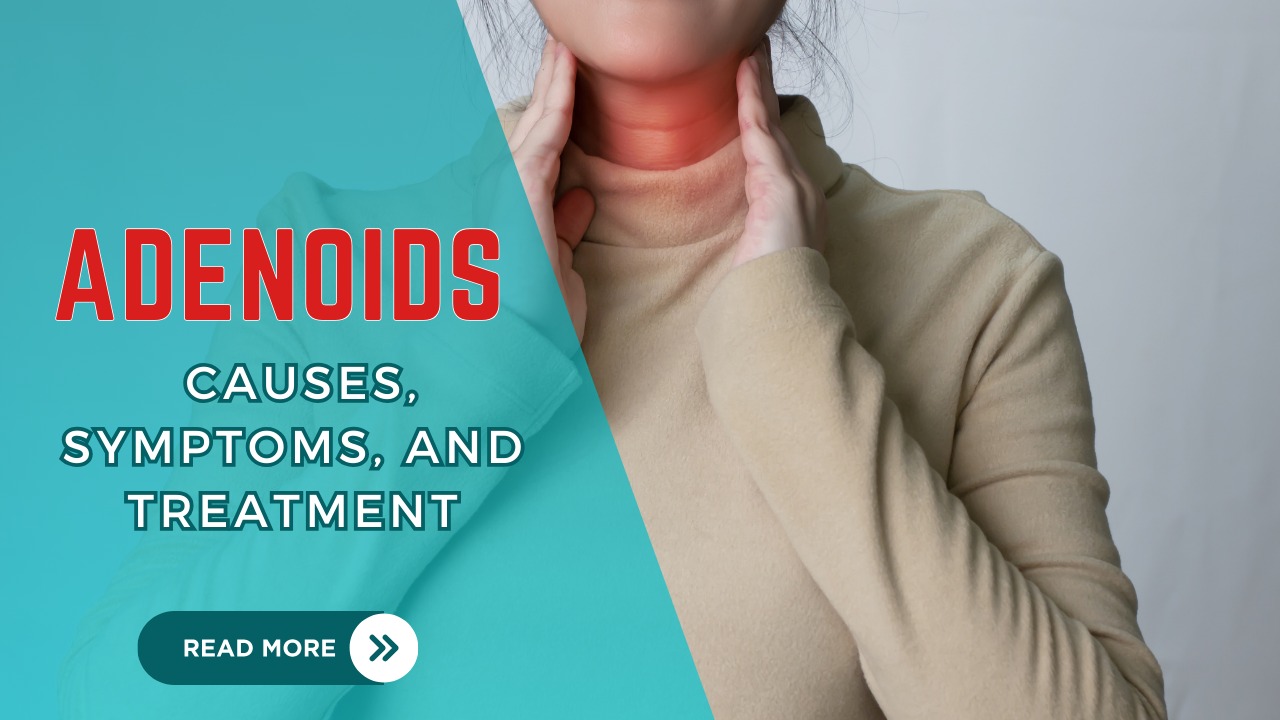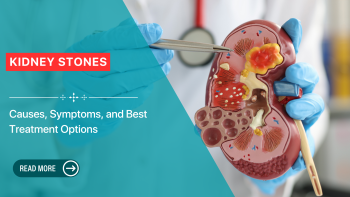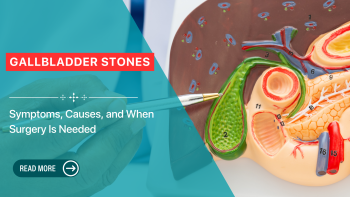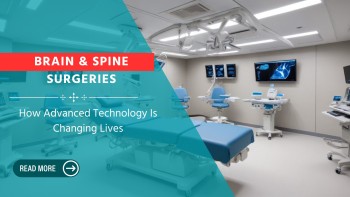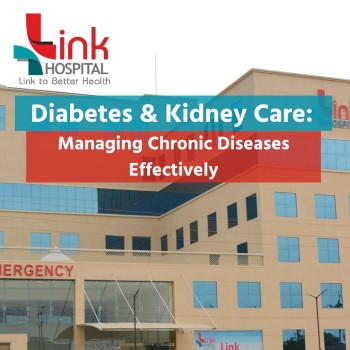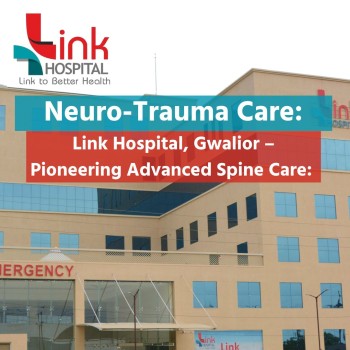Adenoids are a part of the immune system located at the back of the nasal
cavity, above the roof of the mouth. They play a crucial role in defending the
body against infections, especially in young children. However, when adenoids
become swollen or infected, they can cause various health issues. This
comprehensive article delves into the causes, symptoms, and treatment options
for adenoids, and highlights how Link
Hospital in Gwalior can provide expert care and management for those
affected.
What Are Adenoids?
Adenoids are small masses of lymphoid
tissue located behind the nose, where the nasal cavity meets the throat. They
are part of the body's immune system and help trap and destroy bacteria and
viruses entering through the nose. While adenoids are most active during
childhood, they typically shrink and become less prominent after puberty.
Causes of Adenoid Problems
Enlarged Adenoids
Enlarged adenoids are a common issue in
children and can result from:
●
Infections: Frequent infections, such as colds
or throat infections, can cause the adenoids to swell. Chronic infections can
lead to persistent enlargement.
●
Allergies: Allergic reactions can cause
inflammation in the adenoids, leading to their enlargement.
●
Genetic Factors: Some children may be
genetically predisposed to enlarged adenoids.
Adenoiditis
Adenoiditis refers to the inflammation or
infection of the adenoids. It is often caused by:
●
Bacterial Infections: Bacteria like
Streptococcus can infect the adenoids, leading to inflammation.
●
Viral Infections: Common viruses, including
the cold or flu viruses, can contribute to adenoiditis.
●
Recurrent Infections: Frequent upper
respiratory infections can cause ongoing inflammation of the adenoids.
Symptoms of Adenoid Problems
Symptoms of adenoid issues can vary
depending on the extent of the enlargement or infection. Common symptoms
include:
Respiratory Symptoms
●
Nasal Congestion: Enlarged adenoids can block
the nasal passages, causing difficulty breathing through the nose.
●
Mouth Breathing: Due to nasal congestion,
individuals may resort to breathing through their mouth.
●
Snoring: Swollen adenoids can obstruct the
airway, leading to loud snoring during sleep.
Throat and Ear Symptoms
●
Sore Throat: Inflammation of the adenoids can
lead to throat discomfort or pain.
●
Ear Infections: Swollen adenoids can affect
the Eustachian tubes, leading to frequent ear infections or fluid buildup in
the middle ear.
●
Difficulty Swallowing: The obstruction of the
throat by enlarged adenoids can cause swallowing difficulties.
Other Symptoms
●
Persistent Cough: A chronic cough can occur as
a result of post-nasal drip from the adenoids.
●
Speech Difficulties: Enlargement of the
adenoids may affect speech clarity, leading to a nasal or muffled voice.
● Sleep Disturbances: Breathing difficulties caused by enlarged adenoids can lead to poor sleep quality and daytime sleepiness.
Diagnosis of Adenoid Problems
Diagnosis of adenoid-related issues
typically involves:
Medical History and
Physical Examination
A healthcare provider will review the
patient’s medical history and perform a physical examination. This may include:
●
Examination of Symptoms: Assessing the
symptoms described, such as breathing difficulties, snoring, or frequent
infections.
●
Physical Exam: Checking for signs of swelling
or inflammation in the throat and nasal passages.
Diagnostic Tests
To confirm the diagnosis and assess the
extent of adenoid enlargement or infection, additional tests may be performed:
●
Endoscopy: A flexible tube with a camera
(endoscope) may be inserted through the nose or mouth to visualize the
adenoids.
●
Imaging Studies: X-rays or CT scans may be
used to determine the size and condition of the adenoids.
Treatment Options for Adenoid
Problems
Treatment for adenoid issues depends on
the severity of the symptoms and the underlying cause. Options include:
Non-Surgical Treatments
●
Medications: Antibiotics may be prescribed for
bacterial infections, while antihistamines and nasal steroids can help manage
allergies and inflammation.
●
Nasal Sprays: Steroid nasal sprays can reduce
inflammation and alleviate symptoms associated with enlarged adenoids.
●
Home Care: Steam inhalation, saline nasal
sprays, and maintaining good hydration can help ease symptoms and improve
comfort.
Surgical Treatments
If non-surgical treatments are
ineffective, or if the adenoids cause significant health issues, surgical
intervention may be considered:
●
Adenoidectomy: This surgical procedure
involves the removal of the adenoids. It is commonly performed in children with
recurrent infections or significant obstruction. The procedure is generally
safe and can provide relief from symptoms such as breathing difficulties and
ear infections.
Link Hospital in Gwalior:
Expert Care for Adenoid Problems
Link
Hospital in Gwalior offers specialized care for
patients with adenoid issues, providing comprehensive evaluation, diagnosis,
and treatment options. Our experienced team of ENT specialists is dedicated to
delivering personalized care and effective solutions for adenoid-related
problems.
Our Services Include
●
Expert Consultation: Detailed assessments by
our skilled ENT specialists to determine the most appropriate treatment for
your condition.
●
Advanced Diagnostic Techniques: Utilization of
the latest diagnostic tools, including endoscopy and imaging studies, to
accurately evaluate adenoid problems.
●
Surgical Expertise: Safe and effective
adenoidectomy procedures performed by our experienced surgical team, ensure
optimal outcomes.
●
Comprehensive Aftercare: Post-operative care
and follow-up to ensure proper recovery and management of any ongoing symptoms.
Why Choose Link Hospital?
●
State-of-the-Art Facilities: Our hospital is
equipped with the latest technology and medical equipment to provide
high-quality care.
●
Patient-Centred Approach: We prioritize your
comfort and well-being, offering compassionate care and support throughout your
treatment journey.
●
Experienced Team: Our team of specialists has
extensive experience in managing adenoid-related conditions and delivering
successful outcomes.
Contact Us
If you or your child are experiencing
symptoms related to adenoids, don’t hesitate to seek expert care. Contact Link Hospital in Gwalior for a
consultation and take the first step towards better health.
●
Phone: 0751 2920200
●
Email: [email protected]
●
Website: https://linkhospitals.in/
Link
Hospital is here to help you breathe easier and live
healthier. Reach out today to schedule an appointment and receive the expert
care you deserve.
